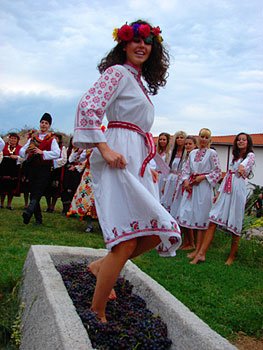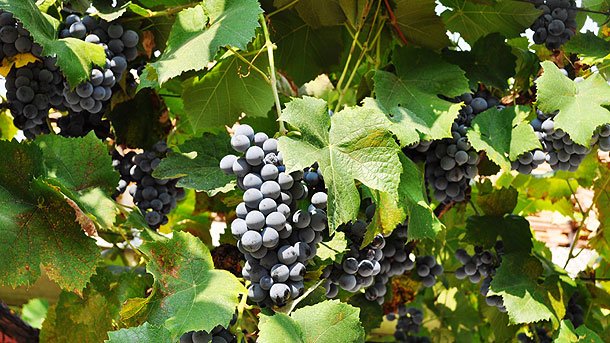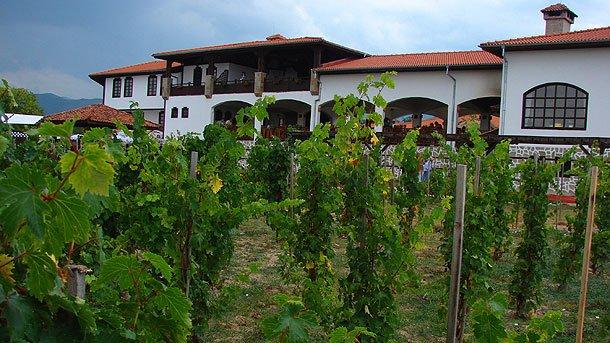Wine tours are not as popular in Bulgaria as they are in France, Italy, and Spain but foreign guests are naturally attracted to Bulgarian wines, which have exceptional qualities. That is why wine tours organized in this country are aimed mostly at tourists coming from western countries with long traditions of wine making.

© Photo: Veneta Nikolova
The path of wine takes us back to the ancient past when Thracians inhabited the Bulgarian lands. Thracians were masters of vine-growing and wine production. They used wine extensively in worshiping Dionysus. Wine has been part of Bulgarian traditions for centuries now and today more and more wineries organize tours for the curious visitors. According to experts, one of the advantages of Bulgaria as a wine destination is the great variety of wines produced in the country. Based on climate and soil Bulgaria can be divided into 5 distinctive-growing regions. We met with Maria Yordanova –chairperson of the Bulgarian Association of Sommeliers who told us more about the most attractive vine-growing regions for tourists.
“During the past years the focus moved towards central and southern Bulgaria. A number of wineries opened in these regions and many of them give tourists the opportunity for a tour and for tasting the wines. The greatest number of wineries is near the cities of Plovdiv, Stara Zagora and Sliven, where wine production has also attracted foreign investments. Some hotels on the Black Sea and in mountain resorts have already started to offer wine tours to their guests.”

© Photo: Veneta Nikolova
In order one to discover the great variety of Bulgarian wines, they should spend some time visiting the most popular wineries, some of which even have guest houses. Wine and history go hand in hand in Bulgaria, Maria Yordanova says and adds that most of the tourists who go for the wine tours are also interested in history, customs, and traditions.
Tourists could combine visiting wineries near the village of Starosel with a tour to the Chetinyova Mogila Thracian tomb dating back to the 5th century BC. Near the unique archaeological site of Perperikon, one also could find local wineries.

© Photo: Veneta Nikolova
Wine tourism in Bulgaria can easily be combined with visiting historical and cultural sites due to their great number. Local festivals and celebrations should not be missed too, as many of them are dedicated to wine.
English version: Alexander Markov
In 2024, the average gross annual salary in Bulgaria is 27,881 BGN (EUR 14,255), according to preliminary data from the National Statistical Institute. Compared to 2023, this marks an increase of 13.9% , with the public sector seeing an increase of..
The Bulgarian National Bank (BNB) has posted, to its website, the answers to important questions connected with the adoption of the euro and the country’s entry into the Eurozone. The official BGN to Euro exchange rate is fixed, with the Lev..
89% of German investors in Bulgaria would choose Bulgaria again for their investments . This is indicated by a study by the German-Bulgarian Chamber of Industry and Commerce conducted in 2024. Germany continues to be a key partner of Bulgaria in terms of..
The Bulgarian National Bank (BNB) has revised upwards its expectations for Bulgarian economic growth in 2025 but lowered its GDP growth forecast for..

+359 2 9336 661
